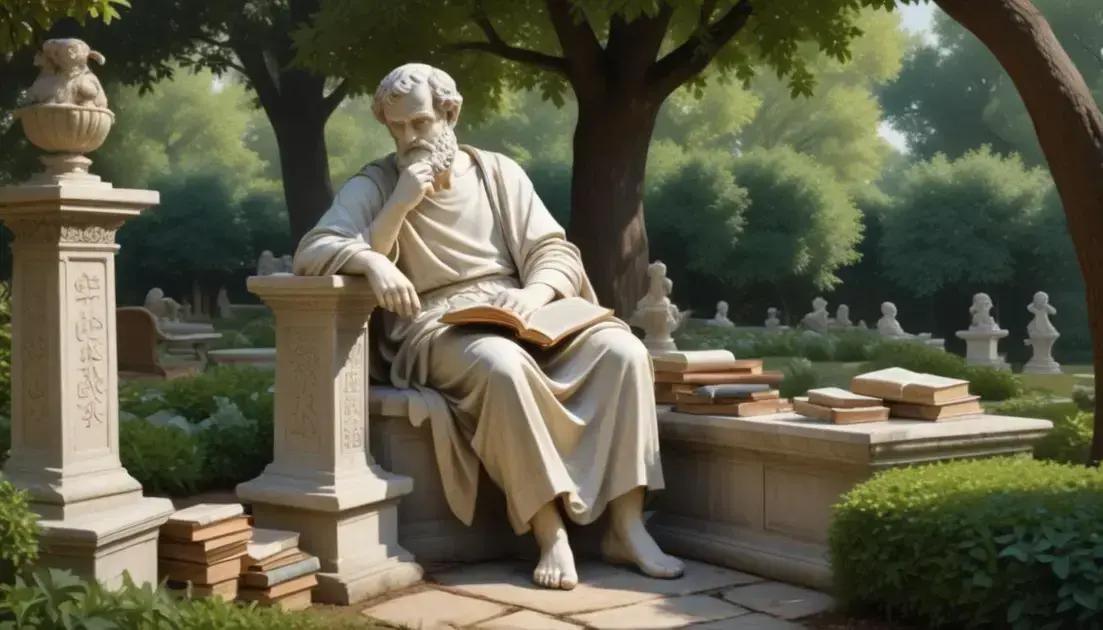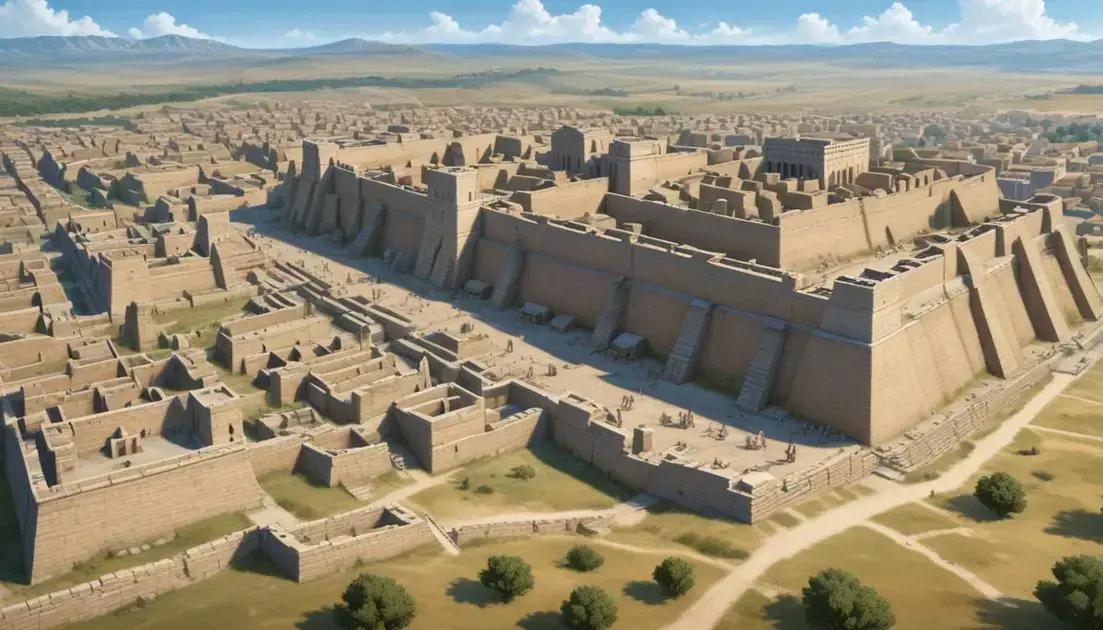
Aristotle: Logic, Ethics and Politics in Harmony
Aristotle significantly influenced Western thought through his contributions to philosophy, science, and ethics. His ideas on logic, the importance of virtue, and civic engagement shaped modern understanding of governance and morality. By advocating for balance in ethics and the practical application of logic, Aristotle’s work continues to inspire critical thinking and informed decision-making today.
In the world of Aristotle, logic, ethics, and politics come together in an intriguing harmony. Have you ever wondered how these elements intertwine to shape our understanding of the world? Let’s delve into this fascinating exploration!
The Foundations of Logic
Logic is the backbone of thinking clearly. It helps us to make sense of the world. With Aristotle, logic isn’t just rules but a way to understand life better. He believed everyone could learn to think logically.
What is Logic?
Logic is like a map for our minds. It guides us from one idea to another. When we use logic, we can solve problems and make decisions more easily. Think of it as a tool that sharpens our thoughts.
Aristotle’s Contributions
Aristotle created many rules for logic. One of his famous ideas is the syllogism. A syllogism connects two ideas to reach a conclusion. For example, if all humans are mortal and Socrates is a human, then Socrates is mortal. This helps us see how ideas relate.
Why Logic Matters
Using logic can improve our daily lives. It helps us argue better and understand different points of view. When we think logically, we’re more likely to make decisions that are fair and reasonable.
Applying Logic in Everyday Life
We can practice logic every day. When faced with a problem, break it down into smaller parts. Ask questions like, “What do I know?” and “What will happen if I do this?” This method helps us to think step by step.
By learning the foundations of logic, we become better thinkers. It opens our minds to new ideas and ways of seeing the world. With practice, anyone can improve their logical thinking skills.
Ethics and Morality in Aristotle’s Philosophy
Ethics is crucial in Aristotle‘s philosophy. It’s about knowing what is right and wrong. Aristotle believed that living well means practicing good behavior. This helps us grow as individuals and as a society.
What is Ethics?
Ethics is the study of moral values. It asks questions like, “What should I do?” and “How should I act?” Aristotle taught that ethics guides choices that affect our lives and the lives of others.
The Golden Mean
One of Aristotle’s key ideas is the Golden Mean. This means finding balance in our actions. For example, bravery is good, but too much can lead to recklessness. Ethics lies in moderation—doing just the right amount.
Moral Virtues
Aristotle identified moral virtues like courage, kindness, and honesty. These qualities make us better people. He argued that practicing virtues leads to a happy life. When we are virtuous, we learn to make better choices.
Practical Wisdom
Practical wisdom, or phronesis, is another important concept. It’s the ability to make wise decisions based on experience. Rather than following strict rules, practical wisdom helps us adapt to different situations.
By understanding ethics and morality, we become more aware of our actions. Learning from Aristotle encourages us to strive for better behavior and build a more just world.
Political Theories of Aristotle
Aristotle’s political theories have shaped how we think about governance. He believed politics is essential for a good life. Politics helps people live together and make decisions for the common good.
The Role of the State
According to Aristotle, the state exists to promote a good life. A well-functioning state provides security and justice. It allows people to pursue their happiness in a safe environment.
Types of Government
Aristotle identified three main types of government: monarchy, aristocracy, and democracy. Each has its strengths and weaknesses. Monarchy can lead to wise rule, while democracy allows for people’s voices to be heard.
The Best Government
He believed the best government is a mix of these types. This combines the strengths of each form and balances power. A blend helps avoid corruption and ensures fair representation.
Civic Participation
Aristotle stressed the importance of civic participation. Citizens should engage in politics to influence their community. Active citizen involvement leads to better decision-making and strengthens society.
By studying political theories, we learn about justice, rights, and responsibilities. Aristotle’s insights encourage us to think critically about our roles in society and the structure of government.
The Influence of Aristotle on Western Thought
Aristotle has had a huge influence on Western thought. His ideas touch many fields, such as philosophy, science, and politics. These concepts continue to shape our world today.
Philosophical Foundations
Aristotle’s work laid the groundwork for Western philosophy. He explored big questions about existence, knowledge, and virtue. His methods encouraged people to seek knowledge through observation and reason.
Scientific Inquiry
Many consider Aristotle the father of science. He studied nature and categorized living things. His approach to research emphasized careful observation and logical reasoning.
Ethics and Morality
Aristotle’s ideas about ethics remain relevant. His concepts of virtue ethics focus on character and the importance of balance. This has influenced modern views on morality and how we make decisions.
Political Theory
His political theories helped shape modern governments. Aristotle believed in the importance of civic engagement. His ideas about balance in government continue to guide democratic practices.
Overall, Aristotle’s influence is vast. He taught us to think critically and look for knowledge. His legacy lives on in our education, ethics, and scientific pursuits.
Conclusion
In conclusion, Aristotle’s impact on various fields is undeniable. His ideas on philosophy, science, and ethics continue to shape our world today. By encouraging us to think critically, Aristotle helped us understand life better.
His emphasis on virtue and balance in ethics shows us how to make thoughtful decisions. Moreover, his political theories remind us of the importance of civic engagement in democracy. Overall, studying Aristotle inspires us to explore, learn, and grow in our understanding of ourselves and the world around us.


